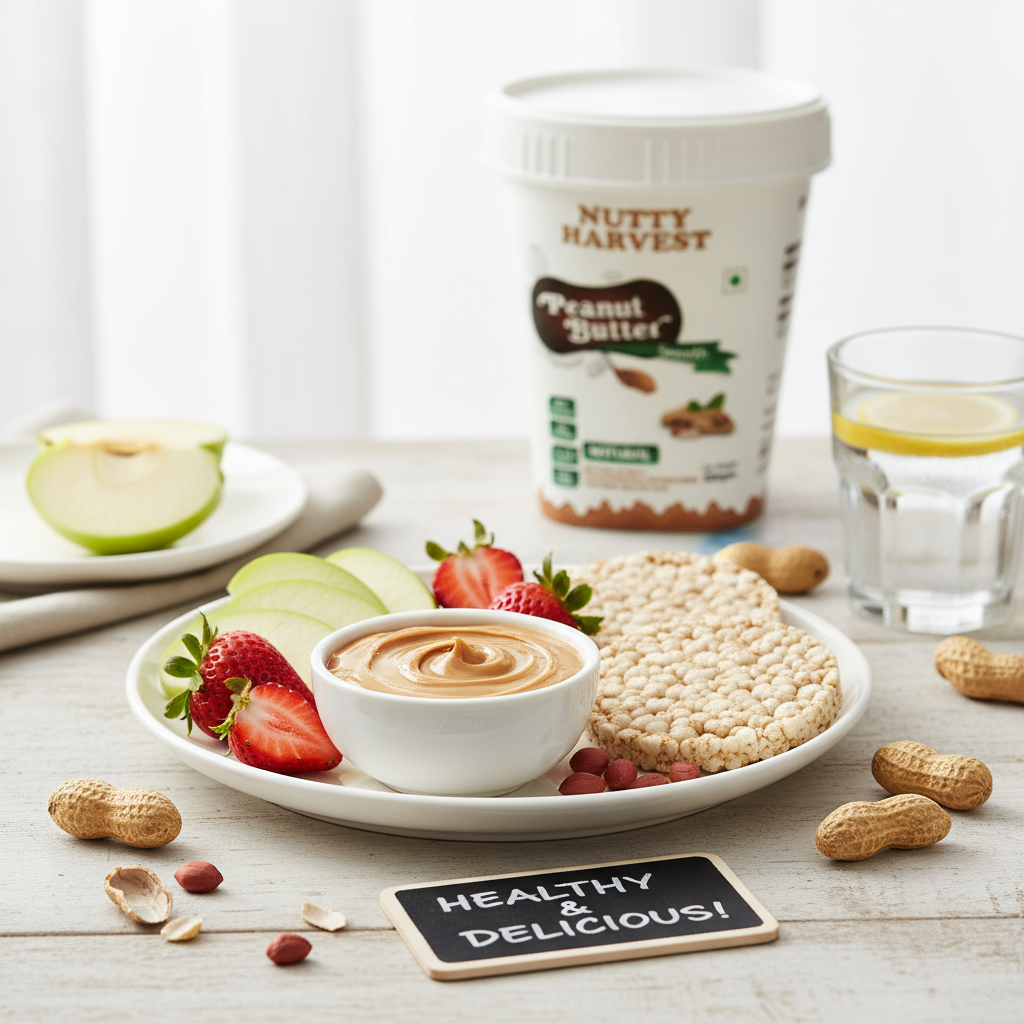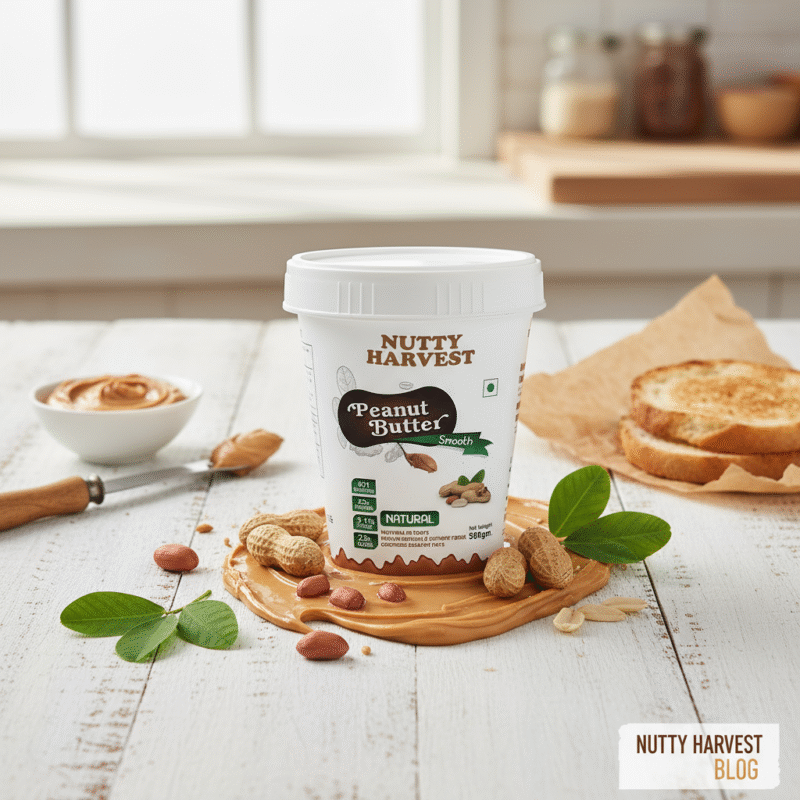Blog
Is Peanut Butter Good for Weight Loss? The Science Explained

Understanding Peanut Butter: Nutritional Profile
Peanut butter is a widely consumed food product that offers a rich nutritional profile, making it a popular choice among many. One of the key components of peanut butter is its macronutrient content, predominantly consisting of proteins, healthy fats, and a smaller amount of carbohydrates. Typically, a two-tablespoon serving of peanut butter contains around 8 grams of protein, which contributes significantly to muscle maintenance and overall health. The protein content in peanut butter can help improve satiety, potentially aiding in weight management.
The fat content of peanut butter is another critical aspect. Comprising primarily unsaturated fats, it is known for supporting heart health when consumed in moderation. While a serving of peanut butter can provide approximately 16 grams of fat, most of these fats are the healthier monounsaturated and polyunsaturated types. These fatty acids are beneficial for reducing bad cholesterol levels and promoting a healthier lipid profile. However, it remains vital to consider serving sizes, as the caloric density in peanut butter can lead to excessive caloric intake if not monitored.
Peanut butter also boasts a modest amount of carbohydrates, roughly around 6 grams per serving, which includes dietary fiber that aids in digestive health. Additionally, it is rich in essential micronutrients, including vitamins such as Vitamin E, which acts as an antioxidant, and certain B-vitamins that play a role in energy metabolism. Minerals found in peanut butter include magnesium, phosphorus, and potassium, all contributing vital functions in the body. By incorporating peanut butter into a balanced diet, individuals may benefit from its diverse nutrient profile while considering its implications for weight loss goals.
Peanut Butter and Satiety: The Feeling of Fullness
The concept of satiety, or the feeling of fullness after eating, plays a crucial role in managing weight loss effectively. Peanut butter, a popular spread, has attracted significant attention for its potential to enhance satiety due to its nutritional composition. Rich in healthy fats and protein, peanut butter may promote longer-lasting feelings of fullness, subsequently regulating hunger and reducing cravings.
Several studies indicate that high-protein and high-fat foods can lead to increased satiety compared to refined carbohydrates. The fats found in peanut butter, primarily monounsaturated and polyunsaturated fats, can slow digestion. This delay can extend the time it takes for the stomach to empty, which may help individuals feel satisfied for a longer duration. Furthermore, protein also plays a vital role in this process; it is known to stimulate the release of hormones that signal fullness to the brain, thereby aligning with weight management goals.
Experts suggest that incorporating peanut butter into a balanced diet may facilitate portion control as well. The creamy texture and rich flavor can contribute to a sense of indulgence, allowing for smaller quantities to satisfy cravings. As a result, individuals may find it easier to adhere to a calorie deficit while enjoying their favorite foods. Additionally, the psychological aspects of consuming peanut butter—its association with comfort and satisfaction—can play a role in reducing emotional eating behaviors, which are often linked to poor dietary choices.
Incorporating peanut butter in moderation as part of a balanced diet may enhance feelings of fullness and help manage hunger effectively. This can be particularly beneficial for those working towards weight loss, as it allows a sense of enjoyment while remaining mindful of overall caloric intake.
Research on Peanut Butter and Weight Loss
The consumption of peanut butter in the context of weight loss has garnered significant attention, leading to various studies examining its impact on body weight and overall health. One notable study published in the journal “Obesity” found that individuals who included nuts and nut butters, including peanut butter, in their diets tended to have a lower body mass index (BMI) compared to those who did not. This suggests that peanut butter may play a role in weight management strategies. Its high protein and fiber content contribute to increased satiety, potentially leading to reduced caloric intake over time.
Another research conducted by the American Journal of Clinical Nutrition provided further insight, indicating that participants who consumed peanut butter as part of a balanced diet were able to maintain or even lose weight without feeling deprived. The study highlighted that the monounsaturated fats found in peanut butter could enhance fat metabolism while providing essential nutrients, which may assist in metabolic regulation and support weight loss efforts.
However, conflicting evidence exists regarding peanut butter’s role in weight-loss regimens. Critics point out that while peanut butter is nutrient-dense, it is also calorically dense. Therefore, without proper portion control, it may contribute to weight gain rather than loss. It is essential to consider individual dietary goals and calorie allowances when including this food, as excessive consumption can negate potential benefits.
Ultimately, the effects of peanut butter on weight loss are nuanced, with existing research presenting both advantages and caveats. Individuals striving for weight loss should approach peanut butter as part of a well-rounded diet, ensuring that they monitor their overall caloric intake while deriving nutritional benefits from this versatile spread.
Incorporating Peanut Butter Into a Weight Loss Diet
Incorporating peanut butter into a weight loss diet requires a balanced and mindful approach that aligns with overall nutritional goals. First and foremost, portion control is vital. Although peanut butter is nutrient-dense, it is also calorie-rich. A recommended serving size is usually two tablespoons, providing around 190 calories. Keeping track of portions ensures that peanut butter can be enjoyed without excessive calorie intake, preventing the disruption of weight loss efforts.
Pairing peanut butter with other healthy foods can amplify its benefits and enhance satisfaction. For example, spreading peanut butter on whole-grain bread or rice cakes can create a nutritious and hearty snack. Additionally, pairing it with fruits—such as apple slices or banana halves—not only complements the flavor but also adds essential vitamins and fiber. Whole grains and fruits serve as excellent companions to peanut butter, offering a well-rounded meal that supports satiety and maintains energy levels throughout the day.
In terms of recipes, there are numerous low-calorie options that incorporate peanut butter while satisfying cravings. A simple peanut butter smoothie, made with almond milk, spinach, and a scoop of protein powder, provides the required protein while being low in calories. Alternatively, a peanut butter yogurt parfait layered with berries and granola can make for a nutritious breakfast or dessert. These recipes not only respect calorie guidelines but also retain the pleasure associated with eating.
Creating a sustainable eating plan that allows for the inclusion of peanut butter helps in making weight loss more enjoyable. By integrating portions of this versatile spread into a diet, individuals can indulge without sacrificing their weight loss goals, leading to a more balanced and lasting approach to healthy eating.

